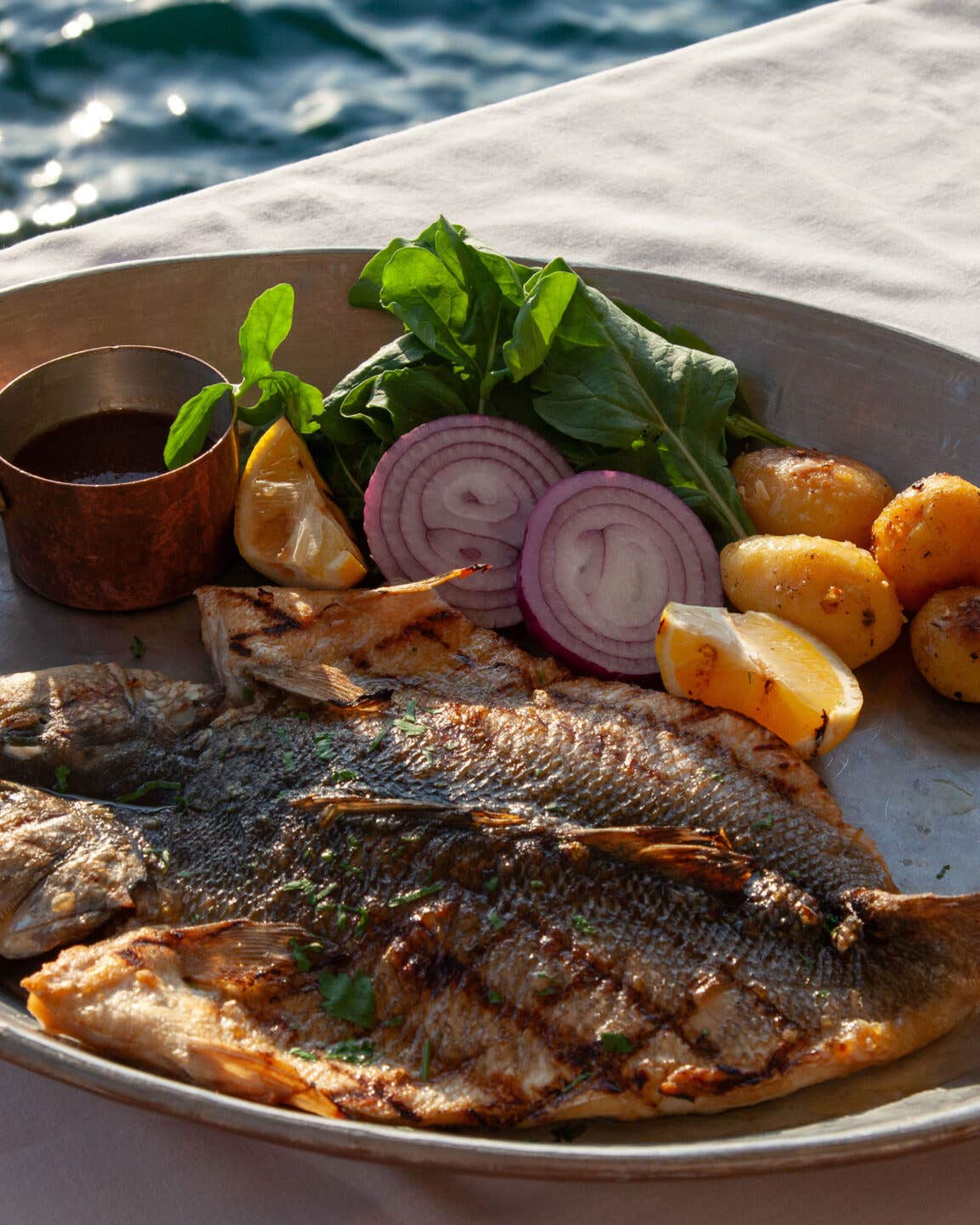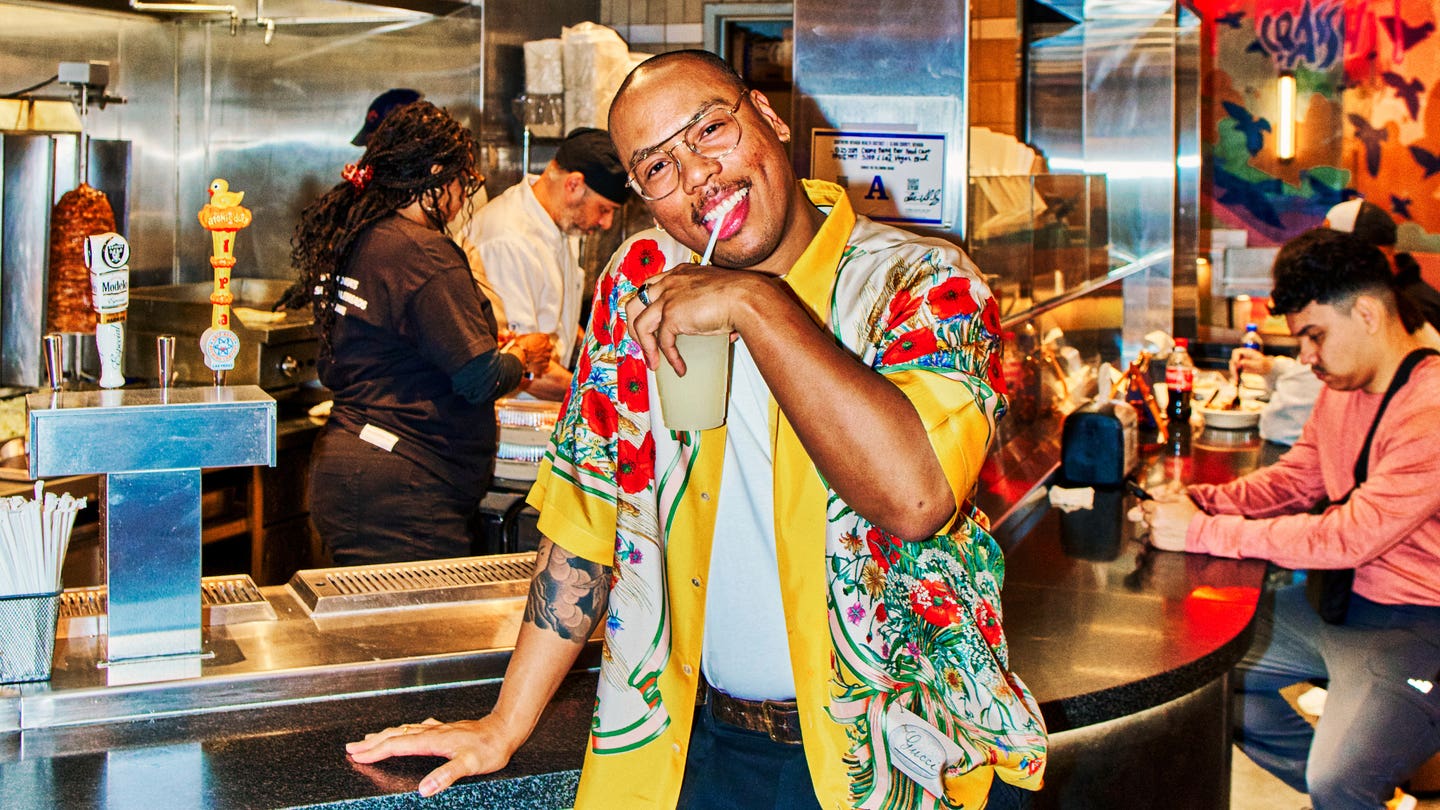
Yuletide at Yosemite
Half Dome dims early in the winter light. The incandescent lamps of the Ahwahnee Hotel glimmer through the incense cedars, summoning the 332 grateful souls who have won the privilege of paying $215 apiece (beverages not included) for a seat at the Bracebridge Dinner, a seven-decade tradition in Yosemite National Park.
We are to begin at 4:15 on this 22nd day of December. There will be a second dinner later tonight, another on Christmas Eve, and two on Christmas Day. More than 15,000 supplicants were in the drawing this year, making the odds about nine to one against getting in.
The Bracebridge Dinner re-creates an English Christmas feast described in Washington Irving's The Sketch Book. Before its publication, in 1820, Americans didn't celebrate Christmas with much fanfare. After (and at least in part because of) the Bracebridge stories, the notion of an English Yuletide, full of carols, feasting, and merriment, became the American ideal.
Irving's vision was of an older, purer England, roughly 18th century with a little 17th thrown in. His hero, Squire Bracebridge, modeled his Christmas on an even earlier, less specific time. "Different centuries were figuring at cross hands...," wrote Irving of the dancing. "The dark ages were cutting pirouettes…Queen Bess jiggling merrily down the middle, through a line of succeeding generations."
The contemporary Bracebridge Dinner also reimagines a prior incarnation—that of the late 1920s, when the photographer Ansel Adams directed the boisterous soirees of food, song, wine (plenty, to judge from the photographs), and supremely goofy pageantry. What we are about to experience today will be, therefore, an imagining of an imagining of an imagining of an imagining.
We order our liquid refreshment ahead of time in the Mural Room, choosing our wine from a hefty leather-bound list, on which not a few bottles bear three-figure prices. Guests mill up and down the halls in black tie and ball gowns, goggling at the splendiferous decorations or getting their photographs taken a la senior prom.
The menu makes no attempt to be antiquarian, but Bob Anderson (who was chef at the Ahwahnee for nine years before leaving in 2001) does derive each dish from a Bracebridge source. When a trumpet blast splits the air, the first course, "The Relish", is already in place—a neat little savory tart of vidalia onion and parma ham.
Our table is a pretty sedate group—unlikely, I think, to violate the Bracebridge Customs, sternly enumerated on a card provided to all, e.g.: "Undignified actions…such as shouting, standing or gesturing at the arrival of the various food courses, do not fit the occasion and meet with The Squire's displeasure."
A tenor in a red velvet cap and tights—more cinquecento Florence than English country house, if you ask me—proceeds down the aisle intoning, a capella, "Let all mortal flesh keep Silence,/And with fear and trembling stand./Ponder nothing earthly minded.…" More Florentines march by, singing "Alleluia". The Squire's Housekeeper enters in a circle of blinding white light. She is wearing a spectacular sort of Arthurian costume, all black, with two little cones on top of her head. The Housekeeper is played by Andrea Fulton, who is also producer, director, writer, composer, hirer, firer, administrator, and choral conductor for the Bracebridge Dinner. This is her 50th year in the pageant. She started at the age of 5.
The Squire, a dead ringer for Henry VIII, presents himself, with his Lady Wife, his Good Mother, their daughter, a Jester, a Parson, and other richly costumed head-table sorts. Booms the Squire, "My lords and ladies, honored guests/Upon whom Christmas blessings rest.../I bid ye hail to Bracebridge Hall!"
Meanwhile, back in the cavernous kitchen—7,000 square feet, with ceilings 32 feet high—332 soup bowls are heating in a long row of ovens. Vats of pureed sweet potato soup are bubbling on the stovetops as a platoon of cooks assembles at the ranges. The waiters jostle their way into place. Ladles dip, swing, and pour. Each filled bowl gets a crimson squiggle of cranberry oil. The few slop-overs are instantly tidied. Trays are shouldered. The doors fly open, and the waiters stream through in close formation, the first to emerge heading to the farthest reaches of the hall. No collisions, no falls, no spills. Three hundred and thirty-two bowls of soup, every last one hot.
As the Squire and Minstrel sing "God Rest Ye Merry, Gentlemen", the Housekeeper and her chorus process majestically back up the aisle, the brilliant follow spot on the Housekeeper all the way. The Jester cuts a few jesterly capers and then takes a seat at our table, and despite our having been, as instructed, pondering nothing earthly minded, he pretends to spit in the soup.
A papier-mache rainbow trout the size of a porpoise is lofted down the aisle. The Housekeeper presents it to the Squire, who approves: "I marvel at thy mastery,/For it seems thou dost as easily/Bring splendid food to our table-board/As make music fit for the courts of the lord!" She bows—rather grandly for a domestic servant—still in her own spotlight. One begins to sense that this particular household may be ruled more by the Housekeeper than by her boss. (I am informed later by Fulton that the role of the Major Domo, formerly played by Ansel Adams himself, has been written out of the script.)
Waiters charge through the swinging doors again, bringing "The Fish"—salmon cured in the style of pastrami, with osetra caviar. The serving of a cold plate at this point leaves sufficient time for the kitchen brigade to roast 332 pheasant breasts and for the saucier to finish the wild mushroom ragout that will accompany them. The pheasant comes out done just to quivering opacity, perfect.
The local poor folks arrive, led by their Village Elder, who is carrying on the end of a pole a thing called a hodening horse, an alligatory-looking skull with a clacking lower jaw. The horse head and the long line of peasants, many in peaked hoods, bring to mind the Dance of Death in Ingmar Bergman's The Seventh Seal. Next, a giant fake peacock pie is marched in, and the starving villagers pretend to chow down ravenously. (They're not actually hungry. The 150-odd cast, crew, and staff have been fed sumptuously behind the scenes.)
A single dong of a bell decrees a serious moment. A guy in orange doublet and orange hat with orange plume gives us "O Holy Night". A soprano in brocade returns the second verse, and then the two unite in harmony so soulful as to sound downright carnal. A few in the crowd begin to sing softly along. It's everybody's lost childhood awe come back to life, and there's many a moistening eye in the candlelight. The ovation is wild, complete with football-stadium whooo-hoos—perilously close to earthly minded.
Back at the stoves, the cooks have roasted some 42 whole tenderloins. The 450 gallons of veal jus and 24 bottles of Jack Daniel's have been reduced to a mere 50 gallons, mounted with ten pounds of butter. Beside our rose red slices of beef will be a small, shimmering puddle of the kind of classic French sauce that has almost disappeared from American dining.
More procession. More food. More wine. Somnolence creeps over the hall. And sure enough, when the salads and cheeses are on their way in, we get "The Virgin's Slumber Song" and a procession of virgins. The Squire toasts his lady love and urges us all to do likewise: "If that best friend be at thy side/Whose faithfulness be true and tried,/Look now into that dear one's eyes/And honor thy love, life's rarest prize./Or if thy friend be far away/Or living in thy memory,/Then close thine eyes and bring them here—/We'll toast our loves, both far and near." If the love duet and the virgins haven't opened every ocular faucet in the house, only a stone or a cynic could resist this.
The now sated Villagers sink to their knees before the Housekeeper. She picks up the smallest urchin child and to it, in her rich alto, sings "Softly She Sang, the Mother Mild". A quartet offers a solemn "Silent Night". The Housekeeper bids us join in, and many, shyly, do. Major blubbering breaks out in various parts of the room.
A giant white-capped globe of papier-mache—a plum pudding, according to the souvenir program—rides down the aisle on the shoulders of some singers, one of whom is carrying a fire extinguisher. A Wassail Bearer bears the wassail to the Housekeeper. She puts a candle to the stuff, and it bursts into flame. Yet another procession—the 18th so far, by my count—proceeds up the aisle, while the waiters rush in with plum puddings, the real thing, hot from the ovens, with brandy syrup and hard sauce.
A world away, the kitchen crew's aprons are spattered and streaked. The elderly automatic dishwasher, big as a locomotive and nearly as loud, is belching steam. Mops are chasing scraps of lettuce, slingings of sauce. It's after seven o'clock. The next 332 revelers are already roaming the hotel, dressed in their finery.
The Housekeeper's last words, sung with a vigorous double-handed wave of dismissal, are "We thank you all for coming/ To share this holiday./We wish you health and happiness—/Now leave without delay."
It's cold and still outside. Half Dome is perceptible only as a place in the sky without stars. Squire Bracebridge's guests disperse to their rooms, their cars, their unimagined lives and times.
Keep Reading
Continue to Next Story










